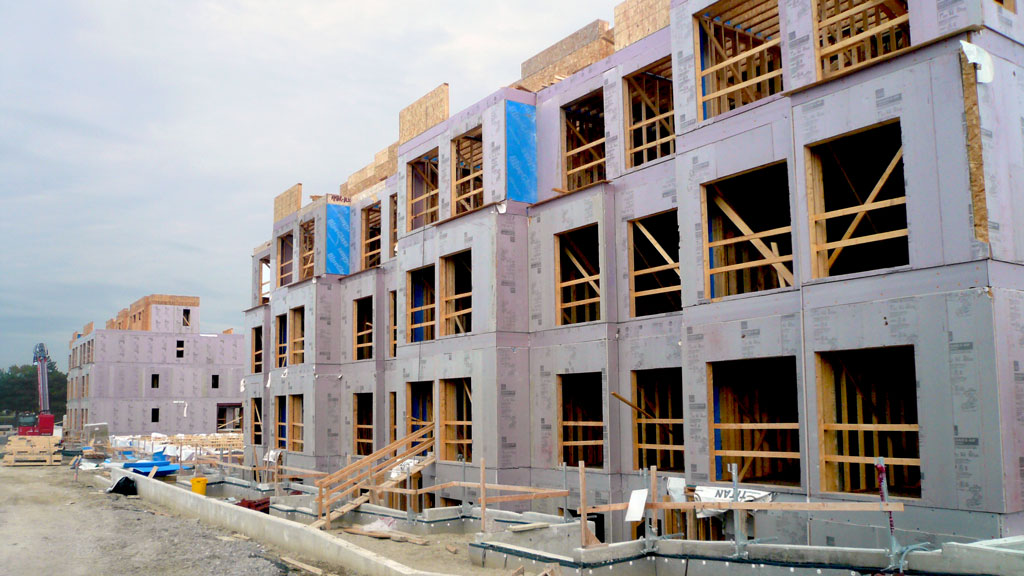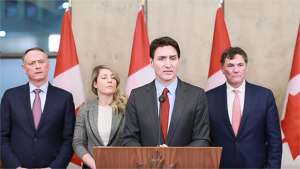Mayors from five Ontario municipalities said while they are doing what they can to help developers get shovels in the ground to build more housing, some elements are out of their control.
A panel entitled Meeting the Challenge — Municipalities and the Housing Crisis, was held virtually by the during Housing Summit 4.0.
Mayor of Guelph Cam Guthrie said every mayor and council he speaks to, for the most part, is 100 per cent behind trying to get more housing built.
“There is a cultural shift within all city halls not only from the politicians but from the administration side, planners and more that this crisis is very real,” said Guthrie.
“We’ve got to move, we’ve got to get stuff done, we’ve got to play our part, we’ve got to have better relationships with private, non-profit and upper levels of government and developers that need to get shovels in the ground. I think over the last year it’s been much better and it’s going to continue to be much better.”
But, there is more the province can do.
“I do see what other provinces are doing across Canada and they’ve gone much further much faster in as of right permissions and zoning,” he said. “I think we still need a little more of that in the province of Ontario.”
Municipalities have different priorities
��Mayor Dan Carter of the City of Oshawa explained municipalities need to think first and foremost about addressing social services, long-term care, policing and works.
“We’re getting way ahead of ourselves in regards to saying we’re going to accomplish all of these homes but we haven’t thought about those other things,” he said. “We can put initiatives and incentives in place, we can do things like the regional revitalization program that we have in Oshawa, waiving of development charges, fast approval times.”
The City of Toronto has improved its approvals processes in the last few years.
“Toronto had the reputation of being very slow in approving anything but it’s now much faster,” said Toronto Mayor Olivia Chow.
There is also a focus on affordable housing.
“We have 6,000 units in the pipeline, shovel ready,” Chow said. “We should get it all done by 2026…If it’s affordable homes there is an exemption on property taxes, development charges, park levy, community benefits. All the things we’re exempting, we’re looking at more.”
In 2022, Guthrie said, the average approval timeline in the City of Guelph was over 300 days but now it’s under 70 days. They are also looking at under used lands, zoning and increasing density and heights in the downtown core.
City of London Mayor Josh Morgan said he looks at housing supply as a shared responsibility. The City of London went from approving 4,000 units in 2022 to 21,572 so far in 2024.
“What you see as a council side of things is us aggressively ramping up our permissions to be permissive on density in the city and saying yes to development opportunities when they come forward,” said Morgan.
The challenge, he said, is those permissions actually turning into units on the ground.
“We’re starting to see the shift from council permissions into actual units being constructed,” he said. “As interest rates continue to come down hopefully that trend will continue and we can start to see actual builds in the ground that will create homes for people to live in.”
Developers need to be part of the solution
Alex Nuttall, mayor of the City of Barrie, said as much as municipalities do, they are relying on the building community and developers to be part of the solution as well.
“Where we’ve seen some trials and tribulations is in relation to the cost of construction,” he noted. “Obviously inflation has impacted us severely in terms of getting those housing builds done and the other one being interest rates really killing projects at least for a time if not in totality.
“We’re actually seeing a major reduction year-over-year in housing starts.”
At the same time the city developed a Housing Community Improvement Plan with the help of the federal and provincial governments.
“We have about $30-plus million that we’re pouring into that and that’s what’s going to facilitate an increase in the final half of this year for housing,” he said. “But there’s no amount of compensation that can make up for what is a very difficult environment for builders to build in. What we’re really trying to do is position ourselves for next year when we believe interest rates will come down, some of the stock in the resale market starts to get eaten up, we’ll be ready to get housing built.”
The mayors agreed municipalities will be focusing on improving internal processes so when conditions improve they can hit the ground running.
“I have a feeling as things get better and better there’s going to be a huge surge for a lot of things to get going,” said Guthrie.
Follow the author on X/Twitter @DCN_Angela.






Recent Comments
comments for this post are closed